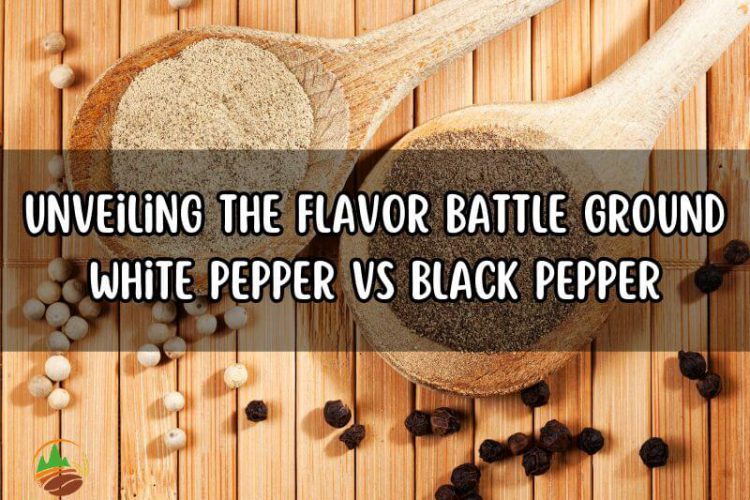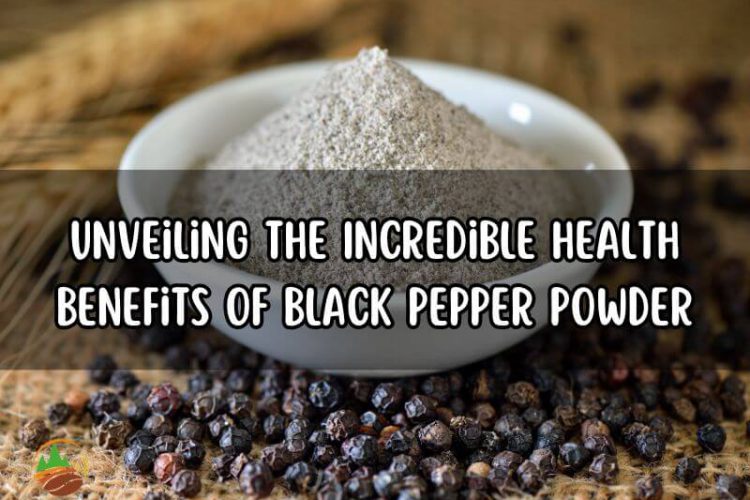White pepper, derived from the same plant as black pepper, has become a popular spice in cuisines around the world. While it adds a distinct flavor and aroma to dishes, white pepper also offers numerous health benefits. In this article, we will explore the potential health benefits of white pepper and how it can contribute to overall well-being.
Table of contents
Various benefits of white pepper and considerations when using it
Let’s get to know the amazing world of white pepper benefits.
Top 5 astonish health benefits of white pepper
White pepper, essentially the seed of the pepper plant with the outer layer removed, offers various health benefits and culinary advantages. Some of the key benefits of white pepper include:
- Digestive Health: White pepper stimulates the taste buds, increasing the secretion of hydrochloric acid in the stomach, aiding digestion. It is often used in traditional medicine to help relieve indigestion, bloating, and flatulence.
- Weight Management: White pepper may help in weight management as it contains a compound called piperine, which interferes with the formation of new fat cells. Additionally, it may also aid in improving metabolism.
- Respiratory Health: White pepper is often used in traditional medicine to alleviate respiratory conditions like coughs, colds, and sinusitis. It is believed to have a warming effect on the body and can help clear congestion.
- Oral Health: The antibacterial properties of white pepper contribute to oral health by combating bacteria in the mouth, potentially reducing the risk of oral infections and promoting overall dental health.
- Enhanced Nutrient Absorption: Studies have demonstrated that piperine, found in white pepper, enhances the body’s absorption of specific nutrients, such as curcumin, thereby facilitating the uptake of essential bioactive compounds.

Considerations when using white pepper
Consider the following when using white pepper:
- White pepper’s pungency exceeds that of black pepper. If you are new to using white pepper, start with a small amount and gradually increase until you reach the desired flavor.
- For optimal results, use white pepper in dishes that require a lighter color, such as soups, sauces, and cream-based dishes.
- Store white pepper in a cool, dark place and use it within 6 months.
- People with allergies or sensitivities to piperine may find white pepper unsuitable.
- Pregnant or breastfeeding women should be cautious, as piperine may interfere with the absorption of folic acid, an important nutrient for them.
When considering a substitute for white pepper, black pepper emerges as a more versatile option. Black peppercorns provide a bolder flavor, an extended shelf life, easy accessibility, and a more budget-friendly choice for everyday cooking needs.

How to apply the benefits of white pepper in daily life?
Here are some of the most common uses of white pepper:
- Culinary uses: White pepper enhances various dishes, such as soups and stews, sauces and gravies, and meat marinades, adding subtle warmth and depth. It also complements mashed potatoes and creamy dishes, while offering an intriguing twist to fruit preserves and baked goods, bringing out their flavors without overpowering them.
- Spice Blends: White pepper is a valuable addition to spice blends, complementing other spices like coriander, cumin, or turmeric to enhance the benefits of white pepper.
- Aromatherapy: Aromatherapists use white pepper essential oil for its stimulating and invigorating properties.
- Traditional Medicine: White pepper has a long history of use in traditional medicine for treating various ailments, including upset stomach, diarrhea, and arthritis. However, it’s important to consult with a healthcare professional before using white pepper for medicinal purposes.

Where to buy white pepper for the most effective benefits?
Most grocery stores, supermarkets, and specialty food stores carry white pepper, making it a widely available spice. Consider the following places for purchasing white pepper:
- Grocery Stores: Most major grocery stores carry white pepper in their spice aisles, such as Kroger, Safeway, Albertsons, Publix, H-E-B, and Wegmans.
- Supermarkets: Supermarkets often have a wider selection of spices, including different varieties of white pepper. They may also carry white peppercorns for grinding.
- Specialty Food Stores: These stores often carry a more diverse selection of spices, including high-quality white pepper from different origins.
- Online Retailers: Online retailers like Amazon, Walmart, or Whole Foods Market offer added convenience when purchasing white pepper, particularly if access to specialty stores is limited.
When choosing where to buy white peppercorns, look for a spice that is free of lumps or clumps and has a strong, fresh aroma. Avoid white pepper that has passed its expiration date, as it may have lost its flavor and pungency.






